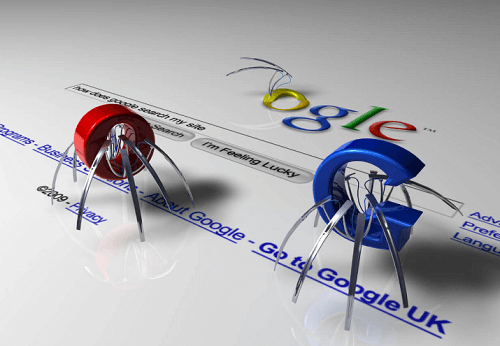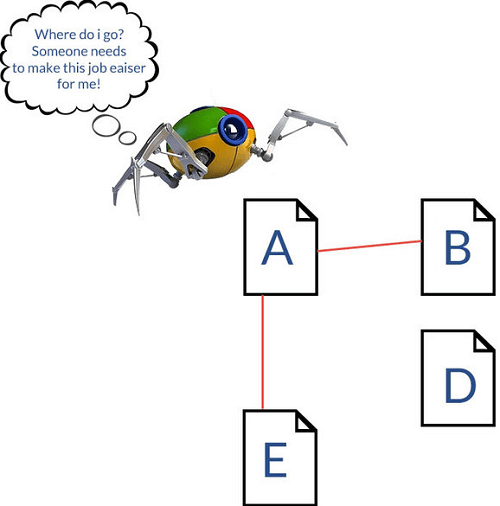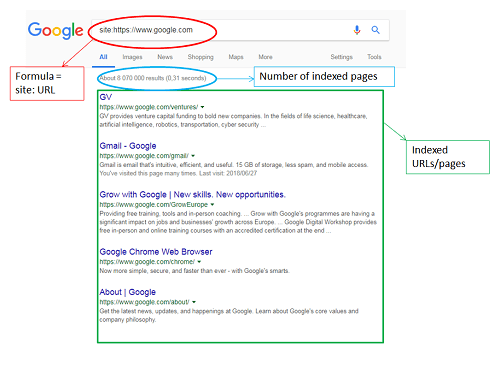Google Index: A Guide for Beginners
Everyday webmasters either create new sites or write new webpages and posts. However, for users to be able to search and find such pages, the site and such URLs need to be crawled and indexed by search engines.
More so, getting your page indexed could take some time. Still, there are a few tactics which can help you get Google to index your page in a short period of time. So, do you want Google to index your new site or pages quicker? Are you looking for better rankings? Then you’ve come to the right place. This article aims to tackle Google indexing, how to get your pages indexed faster, and provides Google indexed page checker tools.

What is Google Index in SEO?
In simple terms, Google indexing is the process of adding webpages on Google search. An index refers to a large database which Google uses to store information about webpages that it has analysed. The term used to refer to the analysis process is ‘crawling’.
Once Google has completed ‘crawling’ your site, the results are put onto the index. If your site is not crawled and presented in the Google index, it won’t appear in the Search Engine Results Pages (SERP). In other words, your site does not even exist to Google. So, users won’t be able to find it on their search results.
Why Getting Your Pages on Google Index is Important
So, why is it important to have your pages indexed by Google? Well, the obvious answer would be that Google indexing helps users find your website and pages. The overall purpose of having a site up and running is to have visitors; could be your potential customers, readers, etc. So, if your site or page cannot be found on search results, what’s the point of having it?
More so, Google indexing helps your site or webpages rank. Google algorithm ranks the best results from its index from 1 (which is best) to infinity (low quality). Regardless of using the best keywords on your copy or a top content management system (CMS), Google won’t have your site on their results if it’s not indexed.

How Google Indexing Works
Google indexation follows three steps as shown below:
- Crawling – First, Google uses a bot also known as Google Spider or crawler, to visit your website for tracking purposes.
- Indexing – Then it puts the analysed data on its database.
- Ranking – The indexed pages are then put on SERPs and are ranked accordingly.
According to several researches, it usually takes Google four days to four weeks to index a website or page. Nonetheless, if you can put in some little work, you can have your webpages ranked in less than four days. The next section unpacks some tactics you can use to help Google index your pages much quicker.
Google Index Tool & Tricks to Use
There are a couple of tricks you can use to get Google indexed quicker. Here are some useful examples:
Internal Linking
Using internal links within your copy and other places on your site (such as sidebars) can help Google index your site faster. Like Bing, Yahoo! and others, Google crawls your site from page to page through HTML links. However, the proper way of doing this will be through content siloing. This is grouping related content together. Take a restaurant website as an example; you wouldn’t find platter options on the drinks tab. Platters are grouped together and drinks together on a separate tab on the menu.

Block Indexing for Low Quality Pages
Having a lot of low quality pages has an impact on the number of times Google crawls, indexes and ranks your website. Pages with low quality may include; pages with no value to search engines, your audience or both. Below are ways to block such pages from being indexed by Google:
- Set page to NOINDEX – this option is for pages which have no value to search engines but your audience.
- Block via crawl through txt file – also for a set of pages which have no value to Google but have value to users such as archives.
- Google Index 301s – pages with no value to both your audience and search engines but have existing links and traffic such as blogs.
- Deletion (404) – deleting pages with no value, links and no existing traffic.
- Sitemap – add all pages onto your sitemap that way crawlers access your site data easily and this helps improve the overall Google index process.
- Link building – get quality websites to link to your website. Also share your site in high traffic sites.
- Create fresh and unique content more frequently.
- Social media – according to research, Google+ is the fastest platform to get your backlinks indexed. Some get 50% of their site’s backlinks indexed using their personal Google+ profile.
- Request fresh crawl – also known as ‘Fetch as Google’ this feature can be found on Search Console. It allows you to put a URL for Google to “Fetch”. After you’ve submitted your URL, a Google bot or spider will visit your webpage and index.

Google Index Checker
Checking if your page has been indexed by Google is quite easy. You can check this by simply typing “Site:URL” on Google’ search box. “URL” is essentially the webpage you wish to check. Lets use Google as an example, the formula would be site:https://www.google.com/chrome/.
More so, you can use the same method to check the number of indexed pages. For this you will need to put the entire site URL and not for a specific page. E.g. site: https://www.google.com. Google will not only tell you the number but will also show you which pages are indexed.

Alternatively, you can use Google Webmaster Tool to check the number of indexed pages. You can do this by simply selecting your property, then the information will be displayed right under the ‘sitemaps’ tab. However, this option does not show you which URLs are indexed.
Google Index Site Overview
Google indexing is essential for rankings and to help users find your page on search results. Without indexing there really is no reason to have a website or page. Using the tactics mentioned earlier does not only assist in having your pages Google indexed but have them indexed in a fairly short period. Using our SEO expertise, we’ve had a short page (300- 400 words) rank in one day with the same tactics. Good luck!
Download full presentation on Google Indexing.
Enjoyed the article? Leave your comment below!


